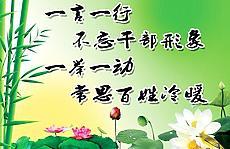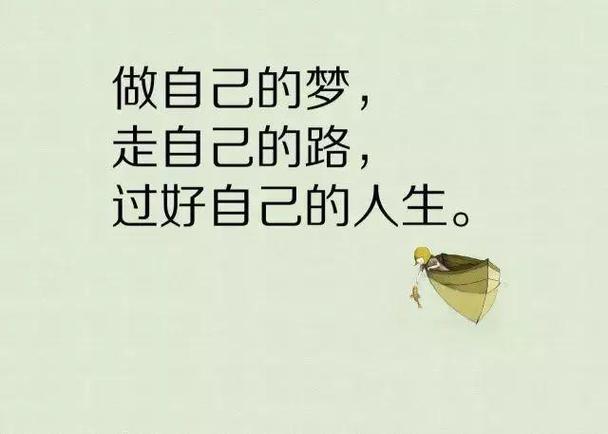2024年2月20日发(作者:DNS试剂)

12的英语怎么读(风筝的英语怎么读)
过去式: flew a kite
He flew a kite in the storm.
他在暴风雨中放风筝。
I'm sorry, I can't fly a kite.
对不起,我不会放风筝。
Brad liked to fly a kite on windy days.
Brad喜欢在大风天放风筝
Willy asks if I've ever flown a kite before.
威利问我以前是否放过风筝。
I'm sorry, I can't fly a kite.
对不起,我不会放风筝。
He wants to fly a kite there.
他想在那里放风筝。
2. 气球的英语怎么读
balloon_balloon[英][bəˈlu:n] [美][bəˈlun]
n.气球;热气球;
3. 我们放风筝的英语怎么读
我们昨天在那放风筝 We were flying a kite there
yesterday.
4. 风筝的英语怎么读音发音
风筝的英文单词是kite。 一、读音: [kaɪt] 二、意思是风筝、鸢。 三、例句 The children are flying kites。 孩子们在放风筝。 四、词汇用法 1、kite的基本意思是“风筝”,指一种用纸或布扎起来的手工艺品,可以由线来牵引乘风飞翔。 2、fly a kite除了表示“放风筝”,还可表示“试探舆论”。
5. 气球和风筝的英语怎么读
PEP英语三年级(上册)三会单词
Unit 1
pen 钢笔 pencil 铅笔 pencil-ca 铅笔盒 ruler 尺子
erar 橡皮 crayon 蜡笔book 书 bag 书包 sharpener 卷笔刀 school 学校
Unit 2
head 头face 脸no 鼻子mouth 嘴eye 眼睛ear 耳朵arm
胳膊finger 手指 leg腿foot 脚body 身体
Unit3
red 红色的yellow 黄色的green 绿色的blue 蓝色的
purple 紫色的white 白色的black 黑色的orange 橙色的pink 粉色的brown 棕色的
Unit 4
cat 猫dog 狗monkey 猴子panda 熊猫rabbit 兔子duck 鸭子pig 猪bird 鸟bear 熊elephant 大象mou 老鼠squirrel 松鼠
Unit 5
cake 蛋糕bread 面包hot dog 热狗hamburger 汉堡包chicken 鸡肉 French fries 榨薯条Coke 可乐juice 果汁milk 牛奶water 水tea 茶coffee 咖啡
Unit 6
one 一two 二three 三four 四five 五six 六ven 七eight 八 nine 九ten 十doll 玩具娃娃boat 小船ball 球kite 风筝 balloon 气球car 小汽车plane 飞机
PEP英语三年级(下册)三会单词
Unit 1
boy 男孩 girl 女孩teacher 教师student 学生this 这个my 我的friend 朋友I’m=I am 我是nice 好的;愉快的good morning 早上好good afternoon 下午好meet 遇见;碰见goodbye 再见too 也;太
Unit 2
father 父亲;爸爸dad 爸爸(口语)mother 母亲;妈妈mom
妈妈(口语)man男人woman 女人grandmother (外)祖母
grandma (口语)(外)祖母grandfather (外)祖父
grandpa (口语)(外)祖父sister 姐妹brother 兄弟
let’s=let us 让我们great 太好了really 真地;确切地and 和;并且how 多么;怎么样
Unit 3
eleven 十一twelve 十二thirteen 十三fourteen 十四fifteen 十五sixteen 十六venteen 十七eighteen 十八nineteen 十九twenty 二十how many 多少can 能够;可以look at 看;瞧
Unit 4
peach 桃pear 梨orange 橙子watermelon 西瓜apple 苹果
banana 香蕉strawberry 草莓grape 葡萄like 喜欢some 一些;某些thanks 多谢
Unit 5
bus 公共汽车bike 自行车taxi 出租车jeep 吉普车desk 课桌 chair 椅子walkman 随身听lamp 台灯your 你的;你们的 zoo 动物园
Unit 6
small 小的big 大的long 长的short 短的;矮的tall 高的
giraffe 长颈鹿deer 鹿
PEP四年级上册四会单词词汇表
Unit 1
Window(窗户) board(板) light(灯) picture(图片) door(门)
floor(地板) classroom (教室) puter(电脑)
teacher’desk(讲台) wall(墙) fan(扇子)
Unit 2
bag(包) pencil(铅笔) pen(钢笔) book (书) ruler(尺子)
pencil-ca(铅笔盒)
Unit 3
teacher(教师) student(学生) boy(男孩) girl(女孩)
friend(朋友)
Unit 4 书桌) door(门) chair(椅子) bed(床)
Unit 5
rice(米饭) beef(牛肉) bread(面包) milk(牛奶) egg(蛋)
water(水) chicken(鸡肉) fish(鱼) 妈妈) driver(司机)
doctor(医生) farmer(农民) nur(护士)
PEP四年级下册四会单词词汇表那个) your(你的)
teacher’s desk(讲台) picture(图画照片) wall(墙壁)
floor(地板) yes(是是的) it(它)
Unit 2
one(一) two(二) three(三) four(四) five(五) six(六)
ven(七) eight(八) nine(九) ten(十) what(什么)
time(时间) it’s=it is …o’clock(…点钟) math(数学)
Chine(语文) English(英语) P.E.(体育) music(音乐)
for(为给) class(课程)
Unit 3
jacket(夹克衫) shirt(衬衫) skirt(裙子) dress(连衣裙)
T-shirt(T恤衫) red(红色的) blue(蓝色的) yellow(黄色的)
green(绿色的) white(白色的) no(不不是) not(不不是的) colour(颜色)
Unit 4
warm(暖和的) cold(寒冷的) cool(凉爽的) today(今天)
jeans(牛仔裤) pants(长裤) socks(袜子) shoes(鞋子)
let’s=let us play(玩踢) football(足球) snowy(下雪的)
sunny(晴朗的)
Unit 5
how much(多少钱) big(大的) small(小的) long(长的)
short(短的) apple(苹果) banana(香蕉) pear(梨)
orange(橙子) watermelon(西瓜) are(是) they 它(他、她)们
Unit 6
hor(马) aren’t=are not cat(猫) rabbit(兔子) pig(猪)
duck(鸭子) dog(狗) eleven(十一) twelve(十二)
thirteen(十三) fifteen(十五) twenty(二十) how many(多少) there(那儿那里)
PEP五年级上册四会单词词汇表
Unit 1
Young (年轻的) funny (滑稽可笑的) tall (高的)
strong (强壮的) kind (和蔼的、亲切的)
old (年老的) short (矮的)thin (瘦的)
Mr (先生) like (像、喜欢) strict (严格的)
smart (聪明的、巧妙的) active (积极的、活跃的)
quiet (安静的、文静的)very (很、非常) but (但是)
Unit 2
Mondy (星期一) Tuesday (星期二) Wednesday (星期三)
Thursday (星期四) Friday (星期五) Saturday (星期六)
Sunday (星期天) day (天) have (有、吃) on
(在…..时候)
do homework (做作业) watch TV (看电视) read books
(读书)
Unit 3
eggplant (茄子) fish (鱼) green beans (青豆)
tofu (豆腐)
potato (土豆) tomato (西红柿) for (为) lunch
(中餐)
we (我们) tasty (好吃的) sweet (甜的) sour (酸的)
fresh (新鲜的) salty (咸的) favourite (最喜欢的)
they are (他们是) fruit (水果) grape (葡萄)
Unit 4
Cook the meals (倒垃圾) water the flowers (浇花)
sweep the floor (扫地) clean the bedroom (打扫卧室)
make the bed (铺床) t the table (摆饭桌)
wash the clothes (洗碗碟) do the dishes (收拾衣服)
u a puter (使用计算机
Unit 5
curtain (空调) trash bin (垃圾箱) clot (壁橱)
mirror (镜子) end table (床头柜) bedroom (卧室)
kitchen (厨房) bathroom (卫生间) living room (客厅)
in (在…里面) on (在…上面) under (在…下面)
near (在..旁边)
behind (在…后边) clothes (衣服)
Unit 6
river (河流) flower (花) grass (草) lake (湖泊) forest (森林)
path (路) pake (公园) picture (照片) hour (房子) bridge (桥) tree (树) road (公路) building
(建筑物) clean (干净的)
PEP五年级下册四会单词词汇表
Unit 1
do morning exercis(晨练) eat breakfast(吃早饭)
have english class(上英语课) play sports(进行体育运动)
eat dinner(吃晚饭) when(什么时候)
evening(夜晚;晚上) get up(起床)
at(在……点钟) usually(通常;一般) noon(中午)
climb mountains(爬山) go shopping(购物;买东西)
play the piano(弹钢琴) visit grandparents(看望祖父母)
go hiking(去远足) weekend(周末) often(经常)
sometimes(有时候)
Unit 2
spring(春天) summer(夏天) fall(秋天) winter(冬天) ason季节) which(哪一个) best(最;极) swim(游泳)
fly kites(放风筝) skate(滑冰;滑冰鞋) make a
snowman(堆雪人)
plant trees(种树) why(为什么) becau(因为)
sleep(睡觉)
Unit 3
Jan./January(一月) Feb./February(二月) Mar./March(三月) Apr./April(四月) May(五月) June(六月)
July(七月) Aug./Augest(八月) Sept./September(九月) Oct./October(十月) Nov./November(十一月)
Dec./December(十二月) birthday(生日) uncle(叔叔;舅舅) her(她的) date(日期)
Unit 4
draw pictures(画画) cook dinner(做饭) read a book(看书)answer the phone(接电话) mom(妈妈) listen
to music9(听音乐) clean the room(打扫房间) write a
letter(写信)
write an e-mail(写电子邮件) grandpa(爷爷;外公)
study(书房)
Unit 5
fly(飞) jump(跳) walk(走) run(跑) swim(游泳)
kangaroo(袋鼠) sleep(睡觉) climb(往上爬) fight(打架)
swing(荡;荡秋千) drink water(喝水)
Unit 6
take pictures(照相) watch incts(观察昆虫) pick
up leaves(采摘树叶) do an experiment(做实验) catch
butterfly(捉蝴蝶) honey(蜂蜜) count incts(数昆虫) collect leaves(收集树叶) wtite a report(写报告) play chess(下棋) have a picnic(举行野餐)
PEP六年级上册四会单词词汇表
Unit 1
by (经,乘) foot(脚) bike(自行车) bus(公共汽车)
train(火车) how(怎样) go to school(上学) traffic(交通) traffic light(交通灯) traffic rule(交通规则)
stop(停,停车站)wait(等待) get to(到达)
Unit 2
library(图书馆) post office(邮局) hospital(医院)
cinema(电影院) bookstore(书店) where(在哪里,到哪里)
plea(请) next to(与…相邻) turn(转弯) right (右边)
left(左边) straight(成直线地) then (然后)
Unit 3
next week(下周) this morning(今天上午) this
afternoon(今天下午) this evening (今天晚上) ic book(漫画书) post card(明信片) newspaper(报纸) buy(购买)
Unit 4
hobby(爱好) ride a bike--riding a bike(骑自行车) dive--diving(跳水) play the violin—playing the violin(拉小提琴) make kites—making kites(制作风筝) collect
stamps—collecting stamps(集邮) live –lives(居住)
teach--teaches(教) go--goes(去) watch--watches(看)
read--reads(读,看) does doesn’t=does not
Unit 5
singer(歌唱家,歌手) writer(作家) actor(男演员)
actress(女演员) artist(画家) TV reporter(电视台记者)
engineer(工程师) accountant(会计) policeman(男警察)
salesperson(销售员) cleaner(清洁工) where(在哪里,到哪里) work(工作)
Unit 6
rain(雨) cloud (云) sun(太阳) stream(河,溪) e from(来自,从…来) ed(种子) soil(土壤) sprout (苗,芽)
plant(植物,种植) should (应该) then(然后)
PEP六年级下册四会单词词汇表
Unit 1
tall—taller更高的 short—shorter 更矮的 strong—stronger 更强壮的 old—older 年龄更大的 young—younger
更年轻的 big—bigger 更大的heavy—heavier 更重的
long—longer 更长的 thin—thinner 更瘦的 small—smaller (体型)更小的
Unit 2
have a fever 发烧 have a sore throat喉咙疼 have a
cold感冒 have a toothache 牙疼 have a headache 头疼
matter事情,麻烦 sore 疼的 hurt疼痛 no 鼻子 tired疲劳的,累的 excited兴奋的 angry生气的 happy高兴的
bored无聊的,烦人的 sad 忧伤的,悲伤的
Unit 3
watch—watched 看 wash—washed 洗 clean—cleaned打扫
play—played玩 visit—visited 看望 do—did last
weekend 上一个周末 go—went去 go to a park—went to a
park 去公园 go swimming—went swimming去游泳 go
fishing—went fishing去钓鱼 read—read 读 go hiking—went hiking 去郊游
Unit 4
leran Chine—learned Chine学汉语 sing and dance—sang and danced 唱歌和跳舞 eat good food—ate good
food吃好吃的食物 take pictures—took pictures 照相
climb—climbed 爬 have—had buy prents—bought
prents买礼物 row a boat—rowed a boat 划船 e
elephant—saw elephant 看大象 go skiing—went skiing
去滑雪 go ice-skating—went ice-skating 去滑冰 how怎
么,如何 get—got 到达 last 上一个的,仅余的,留在最后的
人民教育出版社出版的图书一般称为教材,简称教材。这本书的版本从小学到高中都有。也是大部分学校用的书。
人民教育出版社(People's Education Press,简称PEP)成立于1950年,其前身是华北联合出版社,上海联合出版社和华北教科书编审委员会,1961年与高教出版社合并,是教育部直属的主要从事基础教育教材和其他各级各类教材、教育图书的研究、编写、出版、发行的专业出版社。毛泽东题写了社名。
50多年来,人民教育出版社受教育部委托,主持或参与草拟了2000年以前历次中小学各科教学大纲,由国家颁布;根据我国教育改革发展的需要,先后毛泽东主席亲笔题写的社名,编写、出版了九套全国通用的中小学教材;2014年,人教版第十套教材,即按照教育部新课程标准研究、编写的21世纪义务教育全套新教材正在陆续出版之中,其中一部分已在教育部确定的实验区进行实验。建社至今,累计出版各种出版物万余种,总印数达数百亿册。
Unit 1 这个) is(是)my(我的) that(那
puter(计算机) board(写字板) fan(风扇) light(灯)
this(这
Unit 6 爸爸) mother(母亲
sister(姐妹) brother(兄弟) father(父亲
home(家) room(房间) school(学校) classroom(教室)
window(窗户) desk(课桌
6. 他正在放风筝的英语怎么读
He is flying a kite.
7. 猫的英语怎么读
猫是怎么叫What is the cat's callcall 英[kɔ:l] 美[kɔl] v. 打电话给; 呼唤,喊叫; 召唤,叫来,召集; 下令,命令; n. 喊叫,大声喊; 电话联络; 必要,理由; 要求;
8. 风筝的英语怎么读 单词
“风筝”的英文单词:kite读音:英 [kaɪt] 美 [kaɪt]n.
风筝;鸢n. 空头支票v. 用空头支票骗人;使上升词汇搭配:

本文发布于:2024-02-20 09:12:14,感谢您对本站的认可!
本文链接:https://www.wtabcd.cn/zhishi/a/170839153450257.html
版权声明:本站内容均来自互联网,仅供演示用,请勿用于商业和其他非法用途。如果侵犯了您的权益请与我们联系,我们将在24小时内删除。
本文word下载地址:12的英语怎么读(风筝的英语怎么读).doc
本文 PDF 下载地址:12的英语怎么读(风筝的英语怎么读).pdf
| 留言与评论(共有 0 条评论) |